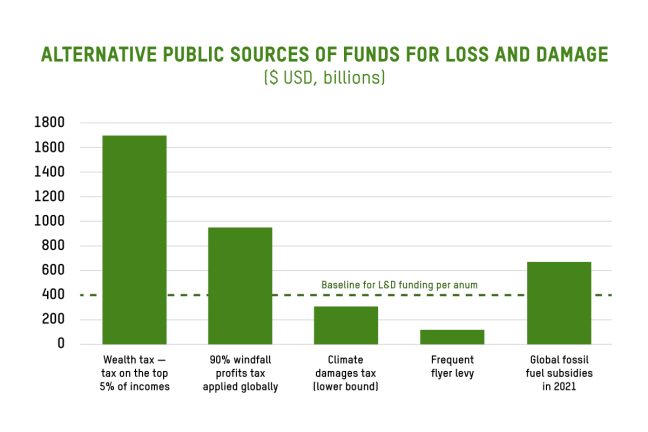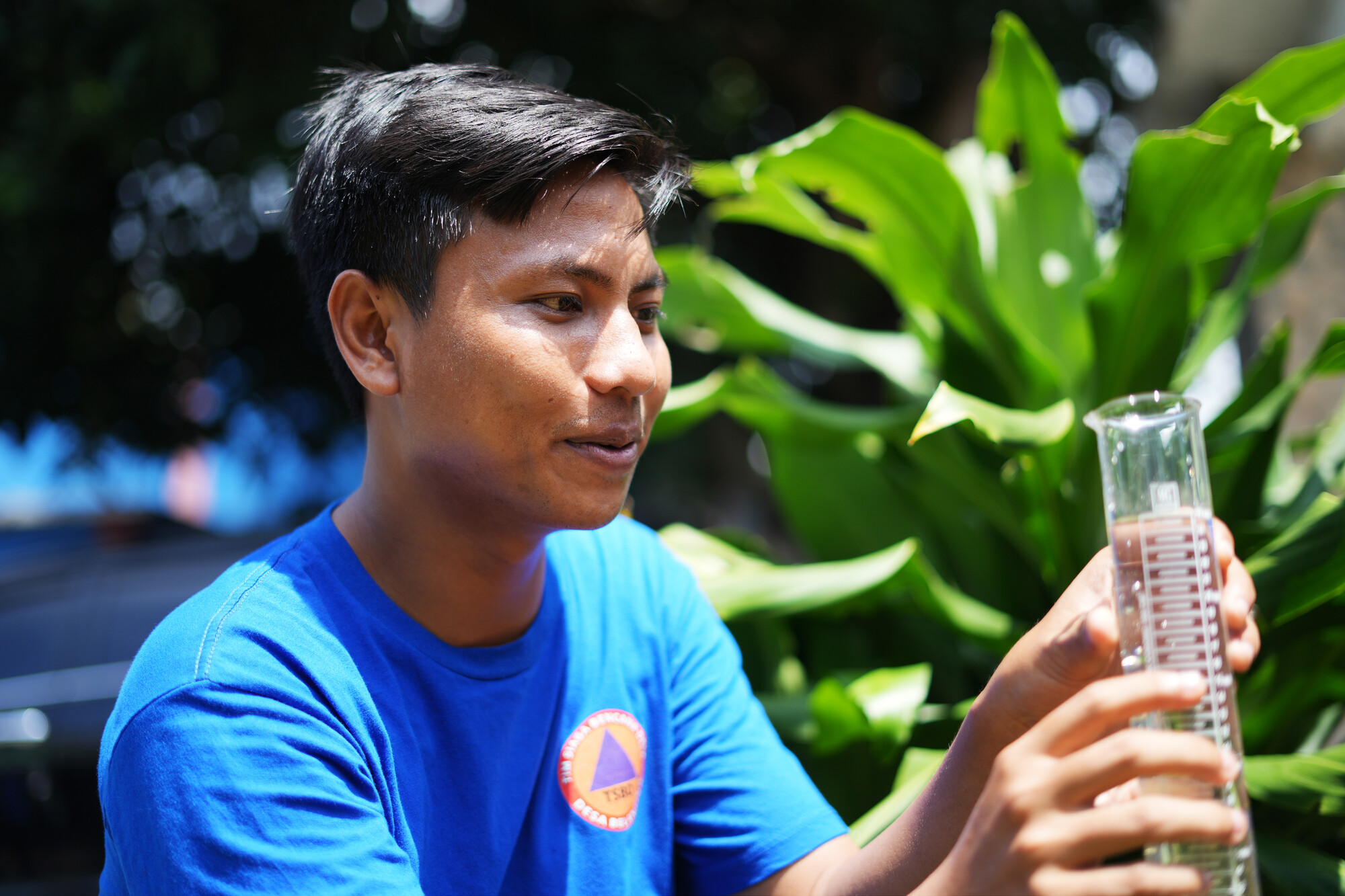Read our two part report on the Loss and Damage Fund Part 1 | Part 2
Oxfam has released a two part report recommending how Australia can help ensure the success of the new Loss and Damage Fund which aims to support people in developing countries most adversely impacted by climate change.
The most profound challenges we face today are the intertwining crises of climate change and inequality. While extreme corporate and billionaire wealth are skyrocketing globally, often off the back of polluting industries, the impacts of climate change are deepening inequality and poverty.
Impacts such as loss of life, destruction of homes, farms and infrastructure in the wake of extreme storms, flooding, drought, sea level rise and other climate change impacts are called ‘loss and damage’.
From its causes to its impacts, the climate crisis is fundamentally unequal. At a global population level, almost half of all climate pollution can be attributed to the top 10% of global emitters – the world’s wealthiest people. These billionaires and multimillionaires own 76% of all wealth globally, enabling them to finance their safety against climate impacts. Meanwhile, the bottom 50% of climate pollution emitters, who have generated only 12% of all global emissions, own only 2% of all wealth and experience 75% of loss and damage impacts.
In other words, the world’s poorest people have contributed the least to climate change, yet experience the vast majority of its impacts and have the least capacity to respond. Without action, climate change will deepen inequality and poverty.
Addressing inequality must be central in the UN Loss and Damage Fund
In 2022, at the UNFCCC global climate change negotiations (COP27), countries agreed to establish a Loss and Damage Fund to provide developing countries most adversely impacted by climate change with funds to recover and rebuild. They set up a Transitional Committee, on which Australia has a seat, to negotiate the details of the Fund and provide recommendations to the UNFCCC global climate negotiations (COP28) in November.
Right now, the Transitional Committee is at a crossroads. The recommendations it makes about who pays and who benefits from the Fund will be pivotal in determining its success in tackling the interconnected global crises of inequality and climate change.
In response, Oxfam has produced a two-part report series calling on the Transitional Committee and the Australian Government to ensure that addressing inequality is at the heart of the design of the new Fund, to ensure it meets the needs of impacted communities and that nobody is left behind.
Those who pollute the most should pay the most
Experts advise a baseline of USD $400 billion per year is needed to meet the scale of climate change loss and damage impacts already being experienced in developing countries. While this figure might seem large at first, governments in 2021 gave USD $697.2 billion in fossil fuel subsidies and that figure is expected to rise in 2022, when accounting for the war in Ukraine.
The Fund must ensure the biggest polluters pay, and that funding sources do not deepen inequality. That means funds must come from those who can afford it and who are most responsible for historical pollution. There are a range of sources of funding that would ensure polluters pay, such as climate damages taxes on fossil fuel industries, shipping and frequent flyer levies, windfall profits taxes, and more. However, some of these measures could deepen inequality depending on the design and supporting policies, or they don’t meet the scale of funding required.

Oxfam analysis shows a wealth tax is the single most appropriate and equitable new source of revenue for the new Loss and Damage Fund that meets the scale of the funding need and is coherent with the principles of polluter pays, capacity to pay and historical responsibility for climate change. A global wealth tax could raise USD $1.7 trillion per annum globally and AUD $29.1 billion per annum in Australia alone, which would provide much needed funds for responding to climate change at home and abroad.
The Pacific is a region on the frontline of the climate crisis. They are already experiencing sea level rise, drought and more extreme storms which are causing great harm. Australia has made clear its intention to advocate for the unique position and needs of our Pacific Island neighbours, who do not have a seat on the Transitional Committee. To be a strong regional ally, Australia must advocate for a fund that meets the scale of need in all developing countries, for new sources of revenue to be equitable, and for accessible, reliable long-term funding that prioritises meeting the self-determined needs of the most climate vulnerable communities, including in the Pacific.


